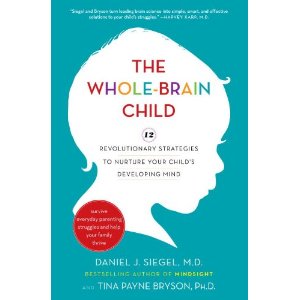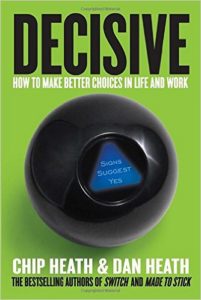 |
Zen Stories
- Zen has a way to help you become a better person
- Cast your bed away as soon as you get up.
- Be kind to everyone
- Always ask yourself in times of tough decisions… what will benefit the most people.
- Don’t eat to satisfaction.
- If you’re always going to complain, it’s inevitable you will quit.
- A wrestler asked a Zen master how to become the most daring and proficient wrestler of all time. The master then told him to meditate for the entire night, focusing on waves that eventually would overtake his body. That night he been drained and meditated of the waves coming in and out, higher and higher. His mental state was exhausted with the constant focus on taking on the current wave, knowing the next one would be stronger. At his next tournament, the wrestler won, becoming the best wrestler in Japan.
- There was a Zen master who worked tirelessly in the garden. A student decided to take away his tools to help get him some rest. The next day, the instructor could not find his tools, so he did not eat. The next day was the same; no tools, no eating. Then the students thought that he was upset because they had hidden his tools. After finding his tools that instructor is then began to work tirelessly in the garden again. Later that afternoon he gathered his students and said, when we do not work, we don’t earn the right to eat.
- Master saw a body floating down the river. Upon looking at the body, he realized it was his own. At that moment, he then gained enlightenment.
- Side note – They mentioned a book Gateless gate
- A man is walking in the jungle. He then sees a tiger, who chases him. The man runs to the edge of a cliff where he grabs a vine to avoid the tiger’s jaws. Below him another tiger waits for him to fall. Suddenly two mice begin to nibble at the vine. As soon as the vine breaks the man grabs a strawberry and eat it before his fall to enjoy on the way down.
- Thief went to go and steal from a Zen Buddhist monk. He traveled that night to find the monk meditating. The monk then approached him. He asked the thief if he would like his clothes. The thief ran off not knowing what had just happened. The Buddhist monk the stars in the sky and mentioned that the thief could not take his most prized possession – the site of the moon and its enchantment
|
 |
The Whole-Brain Child
- Make sense of each situation with your child whether good or bad. If you leave it open this can impact implicit memories. The ability for a child to rationalize what is going on better makes them understand even if its a traumatic experience.
- Left brain is the logical brain this is the one that makes rational thoughts. The right brain connects emotionally to be able to get to discipline.
- Get Children to tell stories to help rationalize. They will tell better stories when they’re distracted. e.g. When they’re playing cards or in the car. Not when you’re staring point blank.
- Don’t discredit the power of story. The ability to tell what happened is therapeutic for them. Understanding emotions intelligence is really what you’re trying to do being able to empathize being able to understand this.
- Relationships are about compromise and communication when dealing with a child. It’s imperative that you have consider both sides.
The lower mind is the emotional side that really has no thinking whereas the higher mind adapts to process.
- So, connect with your child emotionally first. Then you have the opportunity to redirect (discipline)
- Once emotions are aside that’s where you can then put in the disciplinarian action what is it what is not appropriate. Trying to do this before emotionally connecting has no use.
- You should give your child ability to make decisions and live with them. That’s really where their high-level think he comes in. It’s really not making the perfect decision… but it’s making a decision that they can live with. Don’t make the decision for them. let them choose. And even when it’s a tough decision allow them to be challenged and then understand what the consequences are.
- Implicit memory. It’s the negative or positive feelings about certain memories that we don’t even connotative with ourselves. This could be the positive feelings of thinking about Fenway or the negative feelings going to a certain swimming. They are necessarily things that we can sensually in point need direct memory but it may be just a feeling that we have that comes from an implicit memory
- Talking with your child about their emotions builds higher EQ.
- Memory is not a set of file and folder structures .Rather, it’s more based on Association. So if we think about going to Fenway, feelings will flood us in any associated events that surround that. Implicit memory is the trigger.
When certain feelings don’t make sense, (e.g. feeling nervous before a meeting) we may want to explore deeper on what may be triggering that emotion to be connected with the meeting.
- Never teach a lesson when emotions are hot. Only way to learn is when situation is calm.
- Improv can be a fun, family game.
- Discipline is about teaching, not punishment
- To build strong family relationships, create an environment where the siblings will have more enjoyable experiences together. This builds strength into adulthood. Find ways to have fun together.
- Change your child’s mood and get them to move. Have them walk around; get them active. That can help cool down.
|
 |
The Year of Yes
This was one of the most entertaining books that I’ve listened to in a long time. I ended up randomly downloading it to finish my fourth audiobook for the year, and I was presently surprised on the wonderful storytelling behind it. Typically I have to listen to an audiobook two times to ensure that I understood the concepts. This one was so easy to listen to, I was pleased to completely get everything with one full listen. Here were the major items I got out of it:
- The only limit to your success is your own imagination.
- It may have not been the approved thing to do, but it was the right thing to do.
- I found myself constantly saying no. That realization came in when I realized I would have said no to one of the best nights of my life. It was time to start saying yes.I don’t like the place I’m at. Yes, may not lead to better. But it will lead to different.
- The more power someone has, the less screaming they do
- Power pose like superwoman… It can have an effect later in the day.
(I just read an article about how to instill confidence in yourself. This was one of the techniques.)
-
When I work, I compromise something else. I compromise the bath time with my children.
The long hours are a sacrifice. However, I want my daughter to idolize a woman who’s able to work to be able to be fulfilled and powerful. That’s what I want them to see.
|
 |
Decisive –
An interesting book that I though would help lead to better decisions. Here are the highlights:
- A lot of smart people make the wrong decision. Here’s what they did to limit that probability.
- When we are confronted with a decision, we have four steps:
- 1) You encounter a choice;
- We tend to frame the issue narrowly
- 2) You analyze your options;
- We often only look for information that confirms our assumptions
- 3) You make a choice;
- we let short-term emotions guide our decision
- 4) You live with that choice.
- Avoid that approach. Here’s how:
- Multitrack – actively pursue several options at the same time.
- Reality-test your assumptions. Make sure you have opposition to confirm different arguments are considered.
- Attain distance before deciding. You can diffuse the short-term emotion that might lead you to the wrong choice.
- Prepare to be wrong. Plan for an uncertain future rather than believing that you know will happen.
- In other words: WRAP
- Widen your options;
- The ability to make decisions is similar to honing in on a spotlight focus. The better decisions may be shown what the opportunities that why outside of the spotlight.
- Reality-test your assumptions;
-
Ooch
Always do a trial before you buy
E.g. Interviews showing work samples
Keep distance from the decision … ensure emotions won’t factor in
Remove the diva. We all have ego and we think we know. Challenge it when that happens
Take the obvious decision out. What will you do then
- Attain distance before deciding;
- Prepare to be wrong
Other notes:
- Reminder: Believe everyone at work has good intentions. We’re all focused on the same goal.
-
Mental barrier. You do what you want to do… when I fell uncomfortable, is it a problem? Is it a challenge or are your priorities wrong? If you feel uncomfortable about taking time off, is that a problem? Are the priorities for job outweigh family? etc.
|




